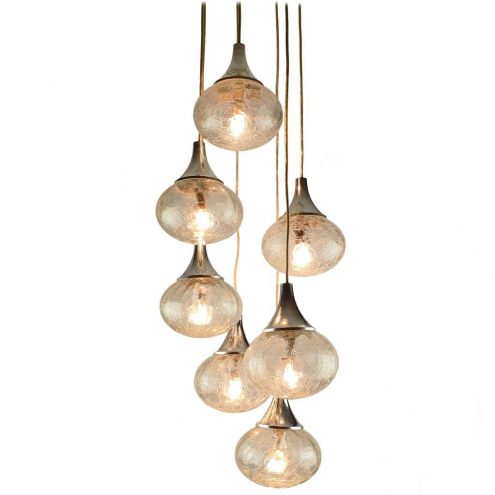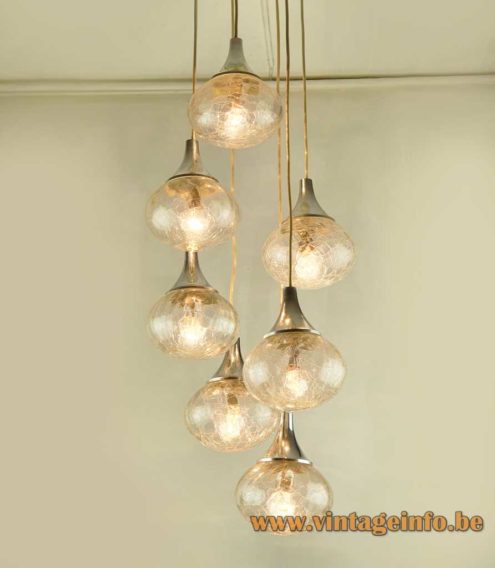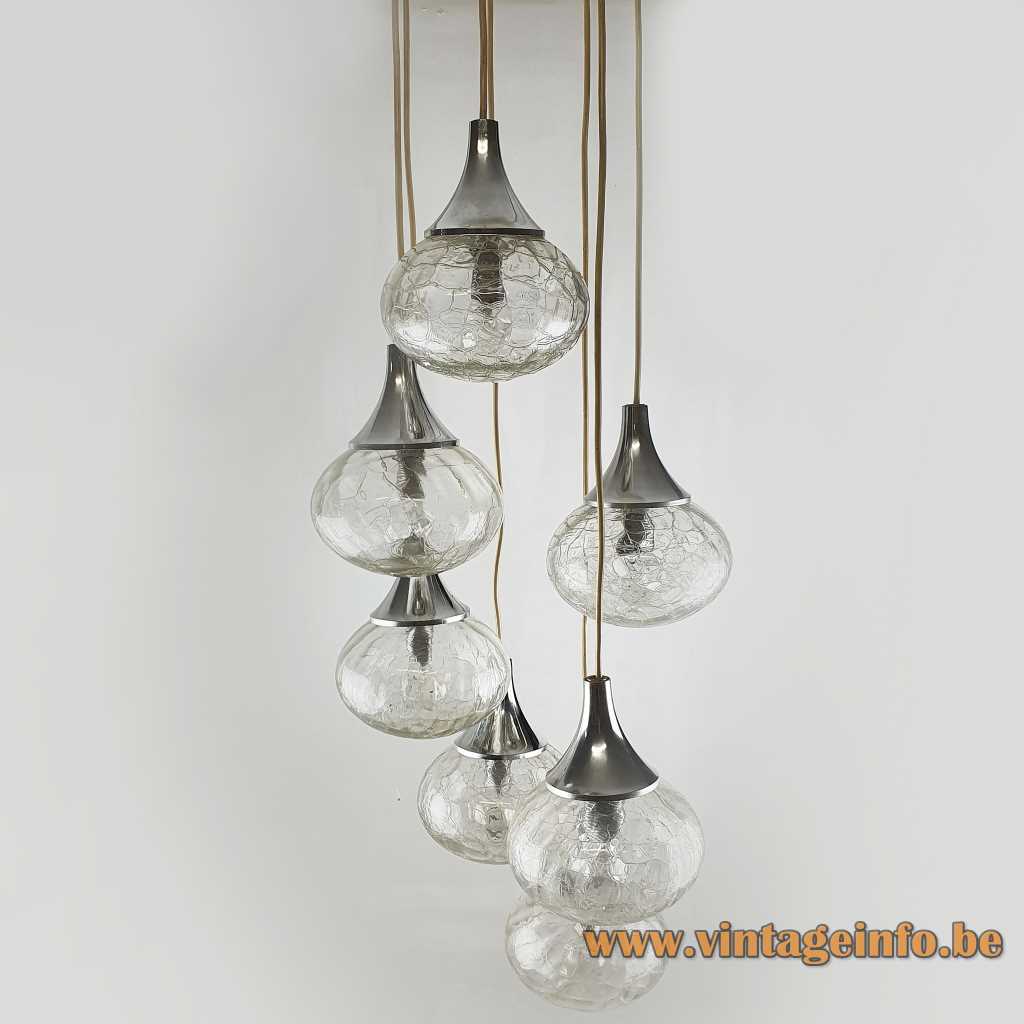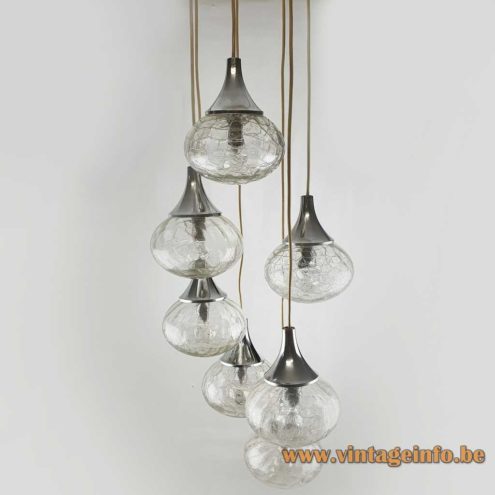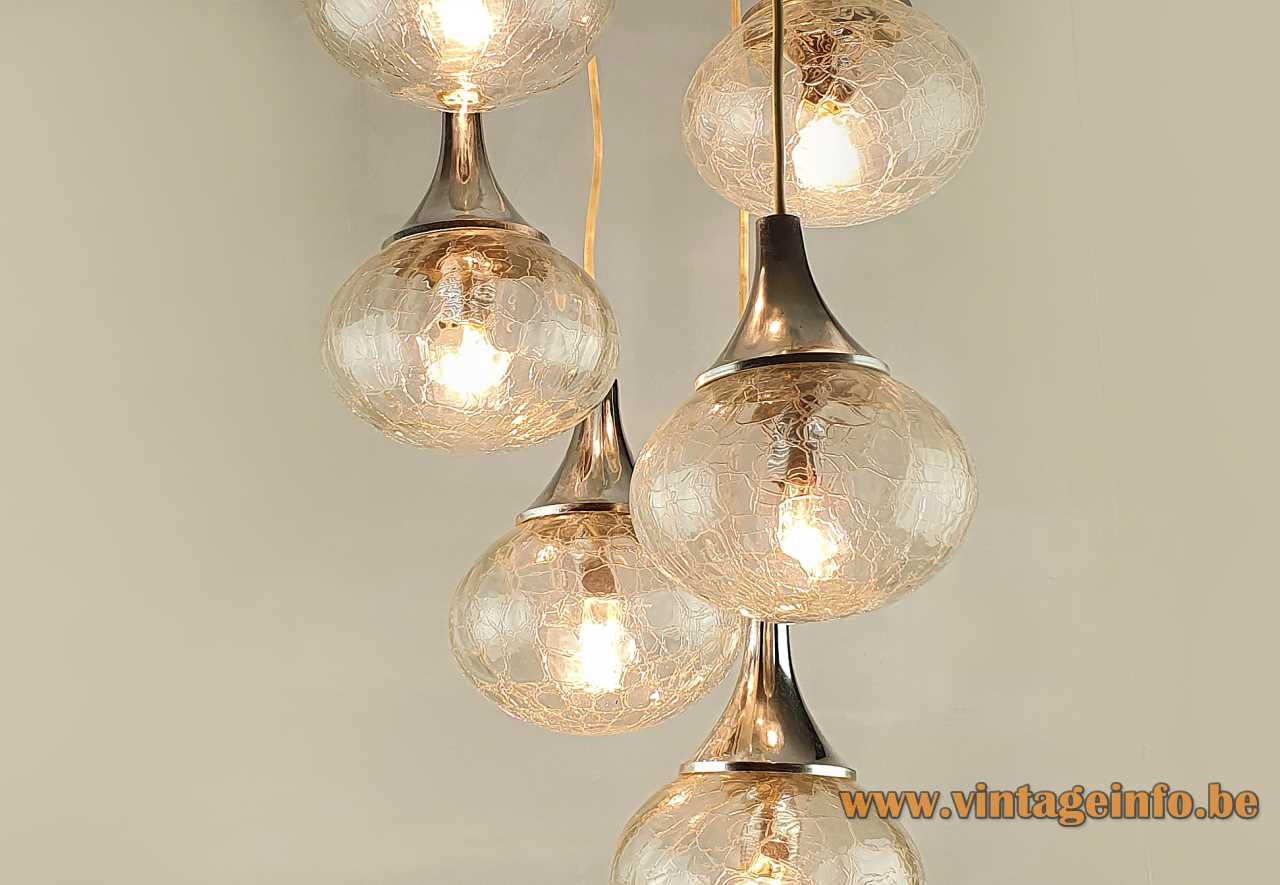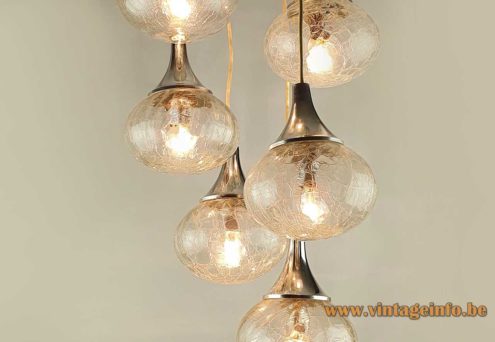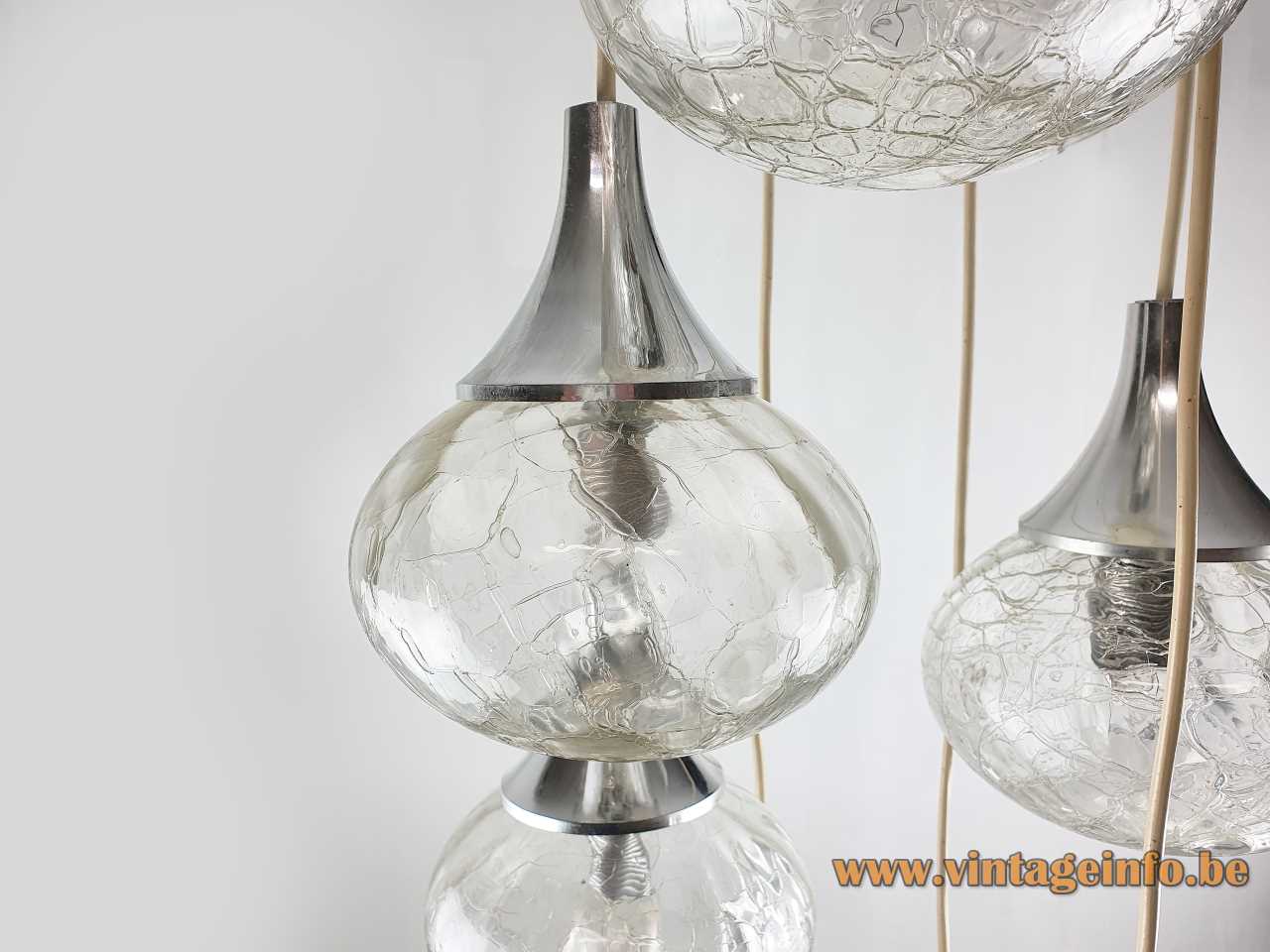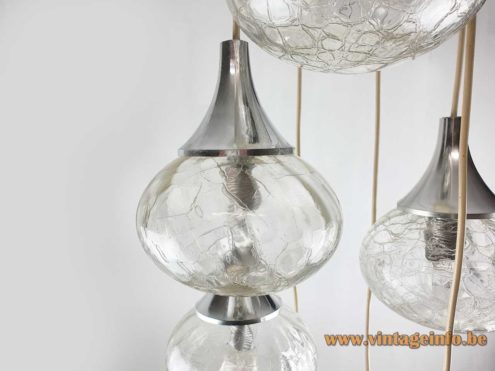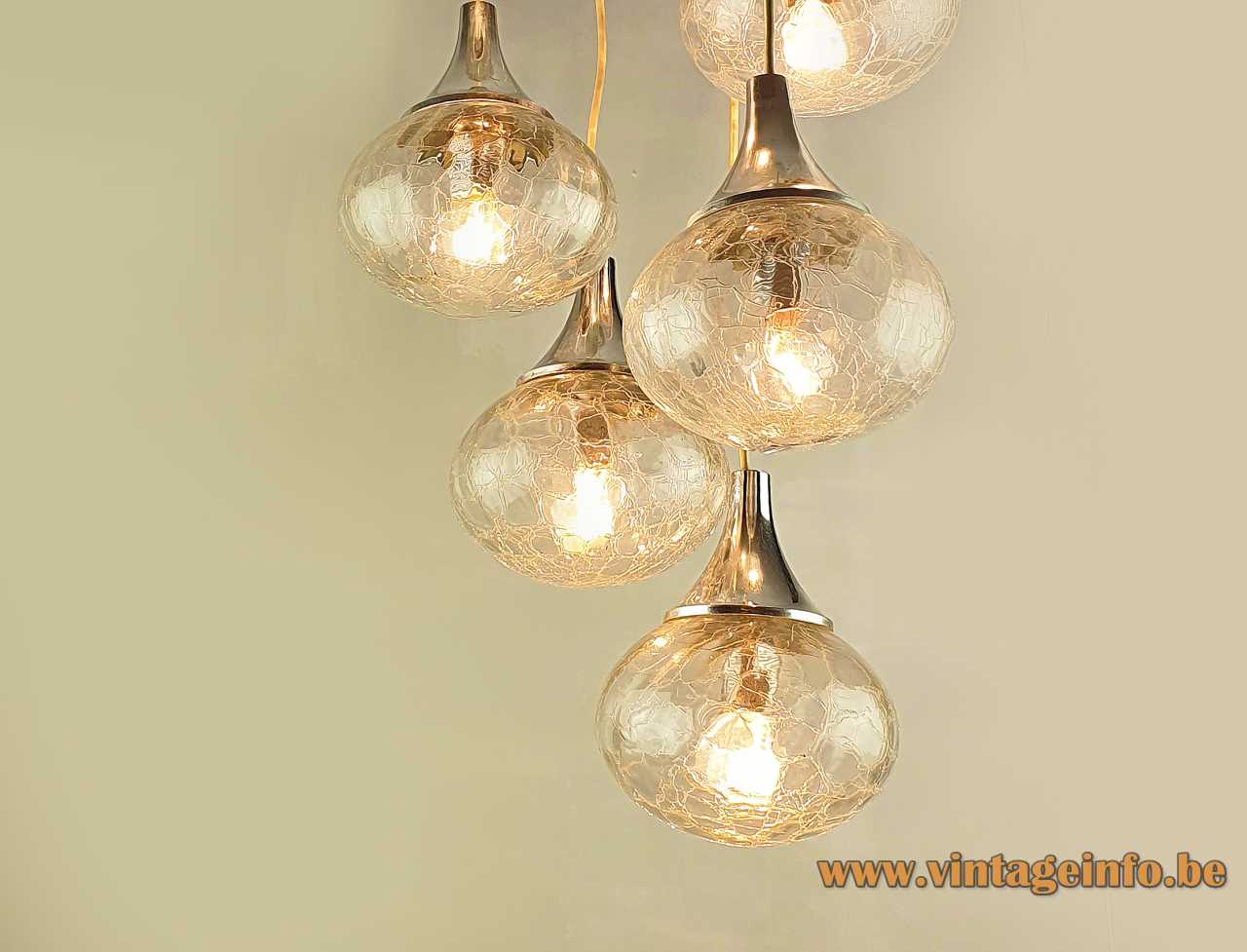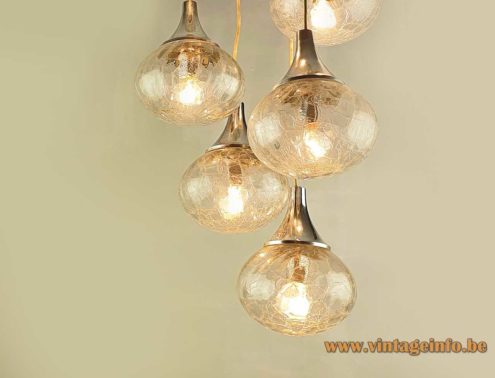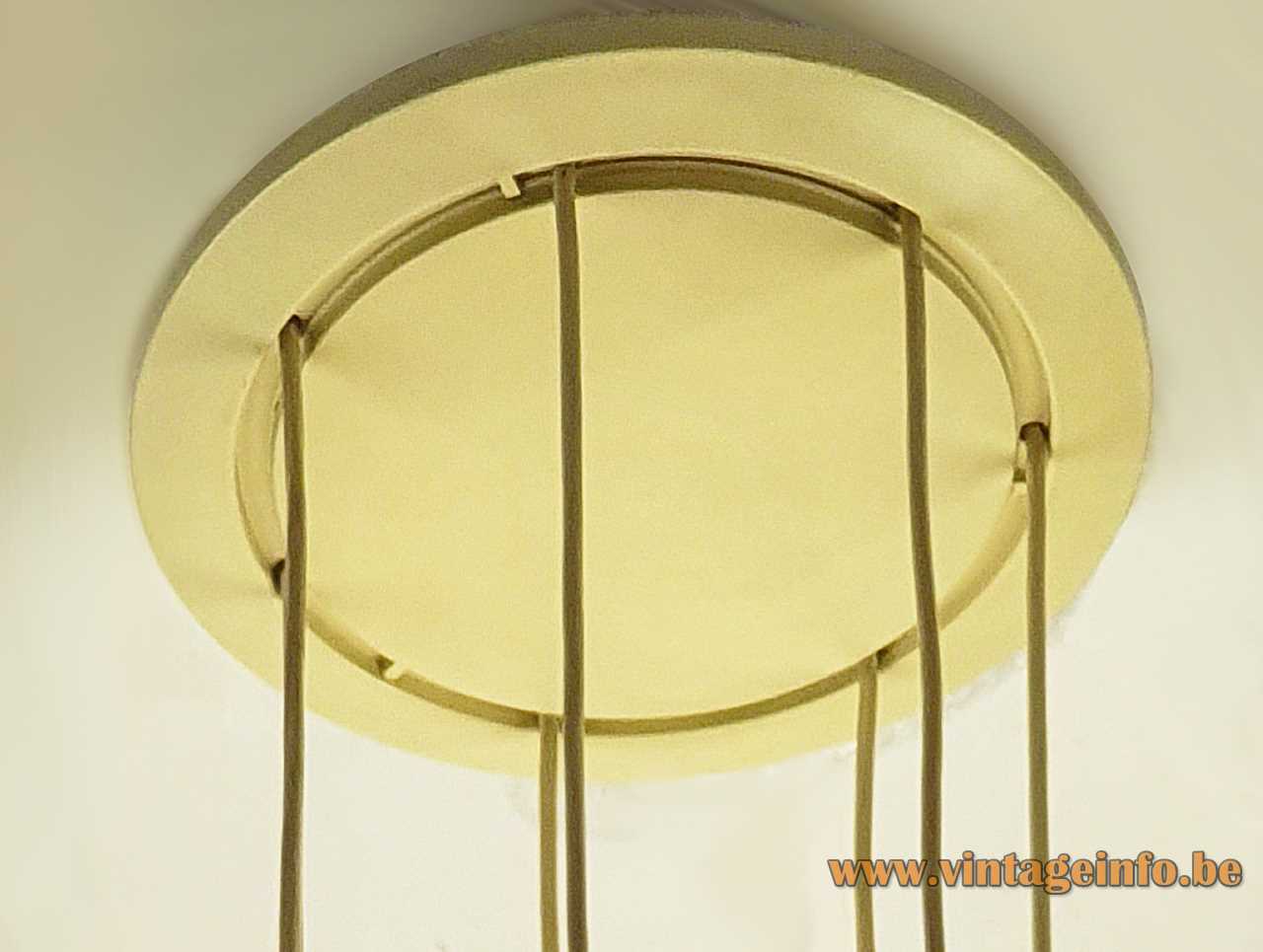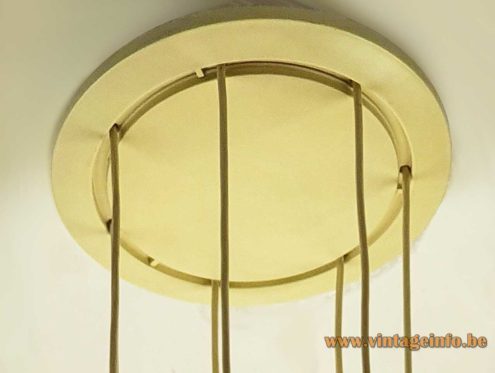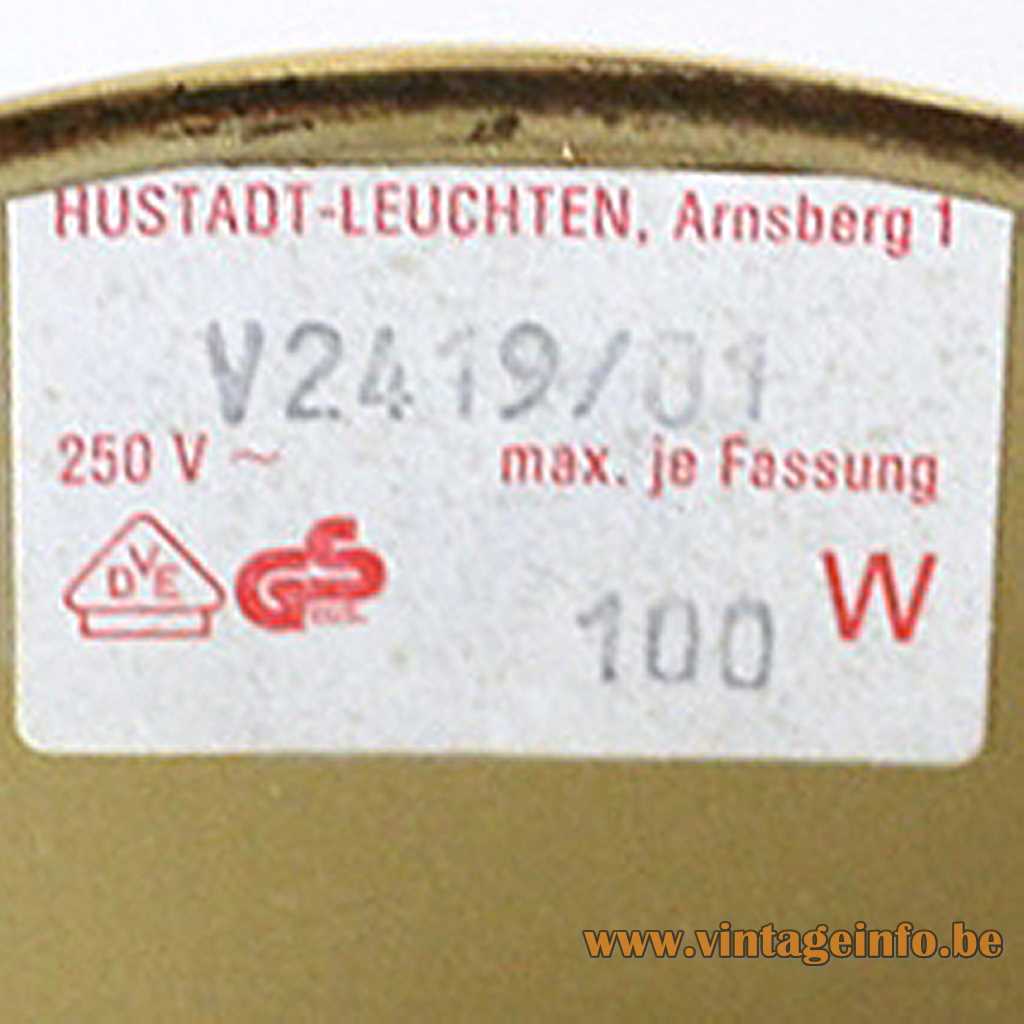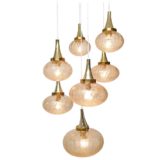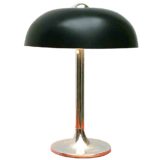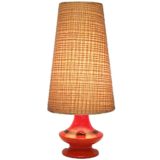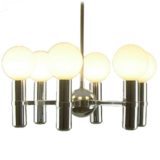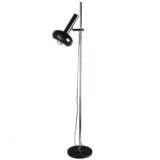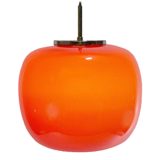Hustadt Crackle Glass Globes Cascade Chandelier
Materials: 7 amber oval crackle glass globe lampshades. Chrome conical lids on top. Big round metal ceiling mount. Some metal parts. 7 metal E14 sockets.
Height: 115 cm / 45.27” – adjustable
Globes: ∅ 17 cm / 6.69”
Ceiling Mount: ∅ 30 cm / 11.81”
Electricity: 7 bulbs E14, 7 x 40 watt maximum, 110/220 volt.
Any type of light bulb can be used, not a specific one preferred. For this setup white opal globe bulbs were used.
Period: 1970s – Mid-Century Modern.
Designer: To be appraised.
Manufacturer: Hustadt-Leuchten, Neheim-Hüsten (Arnsberg), Germany.
Other versions: This Hustadt crackle glass globes cascade chandelier exists in all probability with 3, 5 and 7 globes. The globes were also used for other lamps. They were also sold with a spider ceiling mount. Also brass versions exists, you can find one over here.
Hustadt-Leuchten
Hustadt-Leuchten was founded in September 1962 as Walter Hustadt GmbH & Co. KG Leuchten. Not much is know about it. The company officially ended business in may 2014. It went bankrupt some 5 years before.
Hustadt-Leuchten always produced high quality lamps. You can find a few lamps on this website. Hustadt-Leuchten received several design awards, all for lamps designed by Klaus Hempel.
One of the most well known designers for Hustadt-Leuchten was Klaus Hempel, who also designed lamps for the famous Gebr. Kaiser & Co. Leuchten company, also from Germany.
Hustadt
Hustadt is also a small German town that was build in the late 1960s as a model neighbourhood according to the general urban standards, to fulfil the requirements for approximately 6000 inhabitants.The town is build on the edge of the city of Bochum. It’s surrounded by woods and fields on the one side, and offshoots of the enormous campus of the Ruhr University, as well as other housing areas on the other side.
Many thanks to Ger for the beautiful pictures.
